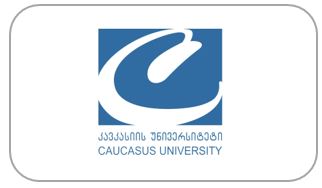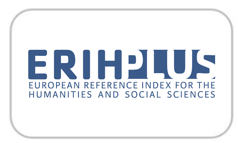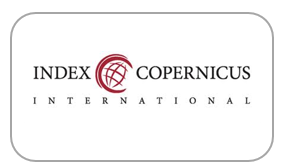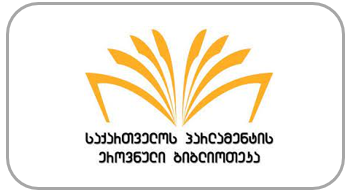პოსტტრავმული ზრდა ომგამოვლილ ქართველ დევნილებში
DOI:
https://doi.org/10.52340/healthecosoc.2024.08.02.13საკვანძო სიტყვები:
ფსიქოლოგიური კეთილდღეობა., სოციალური კაპიტალი, 2008 წლის რუსეთ-საქართველოს ომი, პოსტტრავმული ზრდა, ტრავმული სტრესი, იძულებით გადაადგილებული პირები, სტრესიანოტაცია
შესავალი: სტრესი ფიზიოლოგიური და ფსიქოლოგიური რეაქციაა სტრესორებზე, რომელიც გავლენას ახდენს ჯანმრთელობაზე და ცხოვრების ხარისხზე. მისი გამომწვევი ფაქტორები შეიძლება იყოს ომი, იძულებითი გადაადგილება, სოციალური გარიყულობა და სხვა. კვლევა ფოკუსირებულია 2008 წლის რუსეთ-საქართველოს ომის შედეგად დევნილების მიერ განცდილ ტრავმულ სტრესზე და მის გავლენაზე მათ ფსიქოლოგიურ მდგომარეობასა და ყოველდღიურობაზე. მეთოდოლოგია: განხორციელდა საკითხის თეორიული შესწავლა და გაანალიზდა რელევანტური ლიტერატურა. ნაშრომში გამოყენებულია ლიტერატურის მიმოხილვის მეთოდი, სადაც განხილულია სტრესის, ტრავმის, პოსტტრავმული ზრდის (PTG) და მედეგობის (resilience) ცნებები. კვლევა ეყრდნობა სხვადასხვა ავტორების ნაშრომებს, რომლებიც შეეხება ომის შედეგად დევნილ მოსახლეობაზე სტრესის გავლენას და პოსტტრავმული ზრდის შესაძლებლობას. შედეგები: კვლევის შედეგებმა აჩვენა, რომ 2008 წლის ომის შემდგომ პერიოდში დევნილებში პოსტტრავმული ზრდა არ შეინიშნება. დევნილთა მთავარ სტრესორებს მათი ყოველდღიური გამოწვევები წარმოადგენს, მათ შორის: ფიზიკური უსაფრთხოება, ეკონომიკური კრიზისი, სოციალური პრობლემები და ფსიქოლოგიური ტრავმები, როგორიცაა დეპრესია, მუდმივი შიში, უძილობა, იზოლაცია და დესოციალიზაცია. მიუხედავად იმისა, რომ ბევრ დევნილს მედეგობა (resilience) და სოციალური მხარდაჭერა დაეხმარა ტრავმის დაძლევაში, მათში პოსტტრავმული ზრდა არ გამოვლენილა. ასევე, კვლევის მიხედვით, დევნილ და არადევნილ მოსახლეობას შორის ფსიქოლოგიური კეთილდღეობის მხრივ სტატისტიკურად მნიშვნელოვანი განსხვავება არ არის. დასკვნა: დევნილების ფსიქოლოგიური რეაბილიტაციისთვის კრიტიკულია სოციალური კავშირები და მხარდაჭერა. თუმცა, ქრონიკული სტრესი და ყოველდღიური გამოწვევები ხელს უშლის მათ სრულ ადაპტაციასა და კეთილდღეობას.
წყაროები
Aburn, G., Gott, M., & Hoare, K. (2016). What is resilience? An Integrative Review of the empirical literature. Researchgare. https://www.researchgate.net/publication/289970511_What_is_resilience_An_Integrative_Review_of_the_empirical_literature
American Psychological Association, (2018). https://dictionary.apa.org/s
Badridze, G. (2020). Independence of Georgia and the Historic Responsibility of Our Generation. Georgian Foundation for Strategic and International Studies. https://gfsis.org.ge/blog/view/1074
Fletcher, D., Sarkar, M. (2013). APA PsycNet. APA PsycNet. https://psycnet.apa.org/record/2013-13184-003
Khechuashvili, L. (2016). Posttraumatic growth and psychological well-being of Georgian citizens: A comparative study of internally displaced persons and other citizens. Academia.edu - Find Research Papers, Topics, Researchers. https://www.academia.edu/97487052/Posttraumatic_growth_and_psychological_well_being_of_Georgian_citizens_A_comparative_study_of_internally_displaced_persons_and_other_citizens
Khechuashvili, L. (n.d.). Cross cultural adaptation of post-traumatic growth inventory and psychological well-being scales for Georgian population. Academia.edu - Find Research Papers, Topics, Researchers. https://www.academia.edu/97487028/Cross_Cultural_Adaptation_of_Post_Traumatic_Growth_Inventory_and_Psychological_Well_Being_Scales_for_Georgian_Population?email_work_card=view-paper
Meadows, S. O., Miller, L. L., & Robson, S. (2015). Airman and Family Resilience: Lessons from the Scientific Literature. JSTOR. https://www.jstor.org/stable/10.7249/j.ctt19rmdbt.10
Panjikidze, M., Beelmann, A., Martskvishvili, K., & Chitashvili, C. (2020, June). Posttraumatic growth, personality factors, and social support among war-experienced young georgians. PubMed. https://pubmed.ncbi.nlm.nih.gov/30704339/
Zerach, G., Solomon, Z., Cohen, A., & Ein-Dor, T. (2013). PTSD, resilience and posttraumatic growth among ex-prisoners of war and combat veterans. PubMed. https://pubmed.ncbi.nlm.nih.gov/24225436/
მაღრაძე, მ., საყვარელიძე, რ., ბალიაშვილი, მ., ბალანჩივაძე, ი., ბასილაშვილი, ნ., ბერიძე, ქ., კეჭეყმაძე, რ., კვიცარიძე, მ., ლომსაძე, ქ., ნორაკიძე, თ., & ჩაქიაშვილი, ი. (2011). სტრესი და იძულებით გადაადგილება:ფსიქოლობიური პრობლემები და მათი გადაწყვეტის გბზები (1st ed.). Norwegian refugee council. https://dspace.nplg.gov.ge/bitstream/1234/521371/1/StresiDaIdzulebitGadaadgileba_2011.pdf
მაცაბერიძე, ს., & მჭედლიშვილი, ნ. (2018). 2008 წლის ომის შედეგად კომპაქტურ დასახლებებში მცხოვრებ იძულებით გადაადგილებულ პირთა სოციალური საჭიროებების და სოციალური მუშაკის როლის კვლევა 2008 წლის ომიდან დღემდე. დევნილთა სოციალური საჭიროებები და სოციალური მუშაობა, 1-113. https://openscience.ge/server/api/core/bitstreams/80ad2d0f-50ea-4823-bf37-c1c54dce6fa0/content














